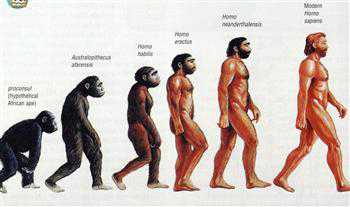By Ferruh Demirmen
The recent censorship of the Darwin story in the “Science and Technology Journal,” published by The Scientific and Technological Research Council (Tübitak) of Turkey, caused consternation in the scientific community in Turkey and beyond. Tübitak is the leading government agency established to advance science and technology in Turkey.
The censorship, first time of its kind in Tübitak’s 46-year history, was an event that would shame any respectful scientific organization.
The making of a scandal
The event started innocuously enough when the chief editor of the journal, Dr. Çiğdem Atakuman, decided to commemorate Charles Darwin’s 200th birthday by running a 16-page cover story on the scientist’s life and his theory of evolution in its March edition. Unesco, the United Nations Educational Scientific and Cultural Organization, had declared 2009 as the Year of Darwin.
By established protocol in Tübitak, Atakuman had the authority to decide on the contents of the journal. But when Prof. Dr. Ömer Cebeci, a vice-president and member of the governing Science Board, found out about the Darwin article while it was at the press, the article and the photograph of Darwin on the cover page were peremptorily removed.
A revised March edition, missing 16 pages and one week late, was issued, and Atakuman was verbally fired from her editorial position (“re-assigned”). The cover page was replaced with one dealing with global climate change.
What Tübitak did not realize was that its actions were a recipe for a scandal.
Condemnation
The reaction from various quarters in Turkey and abroad was swift. Academics and students from various universities in Turkey gathered in front of the Tübitak building in Ankara to protest the censorship. Amid calls for the resignation of the Science Board, other academics, journalists, nongovernmental organizations and opposition politicians condemned Tübitak’s action. Turkish media gave wide coverage to the incident, and newspapers abroad weighed in.
Tübitak was caught in a storm it had not expected.
Voices of concern came from the Royal Society in London, the American Association for the Advancement of Science (AAAS), the Federation of American Scientists (FAS), EU politicians, and other foreign sources. Bloggers wasted no time on the Internet to chime in.
Science versus dogma
What lay at the core of these criticisms, and rightly so, was that science was being subjugated to the dictates of religious dogma. Darwin’s theory of evolution, while it forms one of the building stones of modern science, is incompatible with Islamic faith that man was created by God.
Data suggest that only 25 percent of Turks believe in evolution, some, including the education minister Hüseyin Çelik, associating it with atheism. Turkish theologians generally reject the idea that man evolved from lower beings.
There is, of course, a similar quandary with the Christian and Jewish faiths, but in the Turkish case Islamic teachings never stood in the way of evolutionary science. The academics and scientists managed to separate or reconcile evolution and Islamic faith, and the government did not interfere. They were free to practice and teach science including the theory of evolution.
That was in keeping with the secular fabric of the republic as established by Kemal Atatürk.
Tübitak itself featured Darwin many times in its journal in the past, and the event passed without any incident.
Islamic wind
The changeover in Tübitak’s stance on science, in particular the theory of evolution, is no accident. After the ruling Justice and Development Party (AKP) came to power in November 2002, the government has undertaken a relentless campaign to undermine secular education in Turkey. Elements of Islam have been injected into the educational system in various degrees, and religious schools have been promoted. Evolution has been relegated to second status in favor of creationism.
The government has implemented its Islamic policy through laws, regulations and partisan appointments (in some cases in “acting capacity’). The result is a highly politicized educational system from bottom up, including the Council of Higher Education (YÖK).
The shift in Tübitak is part of this politicization process. Beginning in January 2004, when the current president of the Science Board, Prof. Dr. Nüket Yetiş, was appointed in acting capacity, most members in senior administration resigned or were forced out. Amendments made to Tübitak’s charter in August 2008 gave the government substantial control over the institution.
Also in August 2008 Yetiş, whose appointment had previously been vetoed by President Ahmet Necdet Sezer, was appointed as the president of Tübitak by President Abdullah Gül. Yetiş reportedly has ties to Islamists.
Of the 12 members of the Science Board, 10 received their appointments during the AKP government.
So, at the core of the Darwin scandal was political pressure coming from the AKP.
Damage control
To remedy the embarrassment, Tübitak issued a statement denying censorship of the Darwin article and attributing the incident to “miscommunication.” It said there would be a special issue of the magazine later in 2009 covering Darwin.
A press release issued by Atakuman in reply, giving a detailed account of the events, however, left no doubt that censorship had taken place. Atakuman noted that after the incident she was reprimanded by Cebeci, her boss, in his office for pursuing a “provocative” subject in a “sensitive environment” – meaning the AKP rule.
Tübitak would be hard put to explain why the Darwin article was provocative.
Stung by criticism, the government, despite its well-known opposition to evolution, claimed it had played no role in the incident. Surprisingly – and perhaps not surprisingly – YÖK, the council overseeing higher education, declined to comment.
More fallout
What is most disconcerting about the Darwin incident is that it may stunt independent thinking and hinder science in Turkey. Science can only advance if it is free of ideology and religious dogma. Darwin’s theory of evolution is an integral part of science, and it must be disseminated, argued and researched without outside interference. Tübitak should promote, not hinder, such efforts.
It is no surprise that Prof. Dr. Tahsin Yeşildere, Head of the Association for University Lecturers, commented that “Turkish science is in the hands of anachronistic brains who hold it in contempt,” while Lord Martin Rees, president of the Royal Society, called the Darwin incident an example of “cultural corruption and . . . intellectual dishonesty.”
Nor is it a surprise that some EU politicians expressed disquiet, pointing out that the incident was a blatant violation of freedom of thought and scientific independence. Le Monde commented that Islamic groups in Turkey were waging war against Darwin.
Turkey’s prospect to join the EU, already shaky, will no doubt be affected.
What is also ironic, and disturbing, is that the Darwin censorship has taken place in a country that had benefited from Atatürk’s vision. Atatürk observed, eloquently, that “Science is the true guide in life.”
A disquieting thought
It has been 84 years since America had its bizarre “Scopes Trial” (“Monkey Trial”) in a Tennessee court. The trial was portrayed by some as a titanic struggle between good and evil, when in fact it was about truth and ignorance, or about light and dark.
Is it possible that Turkey may soon have its own “Scopes Trial”? That would be most unfortunate. But if the AKP, with its Islamic agenda, continues to meddle with science, it may come to that.
[email protected]





